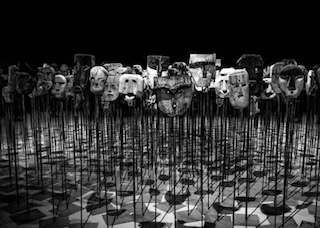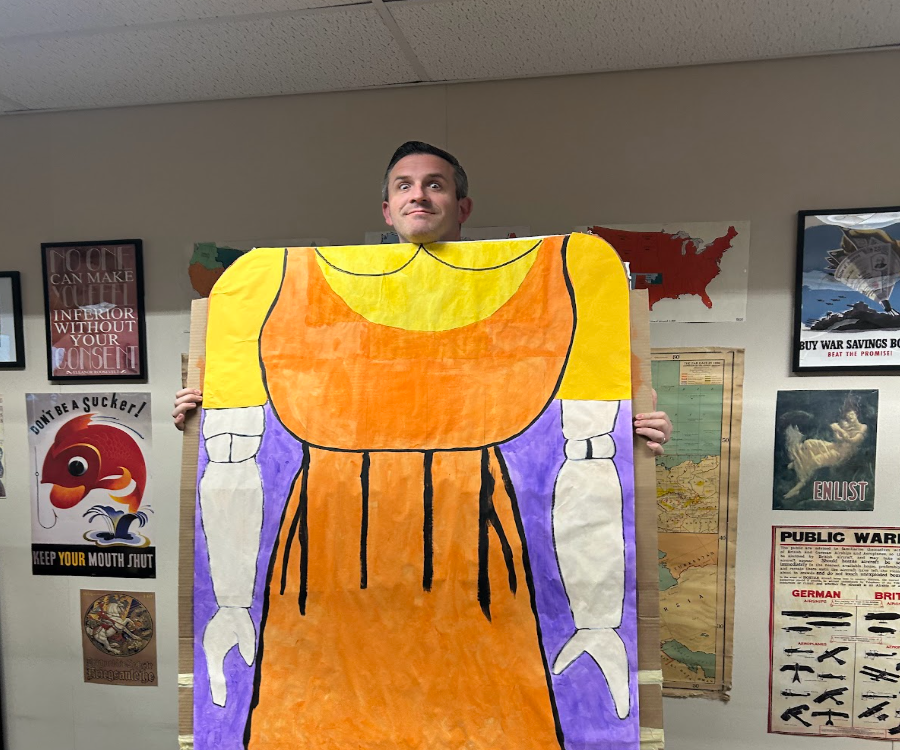Fake it ’till You Make it
Is it better to “fake it ’till you make it” or to understand your limits?

January 18, 2023
Day to day life as we know it is something that can be faked. Whether it be emotionally, through work, through speech, through almost any scenario, anything can be faked. There are times when faking it will help you and improve the behaviors or activities being tested under this procedure. However, there are times when this mantra can cause harm to not only the mental, but physical parts of the body. So just a short warning, not everything can be fixed by faking it, but when you know it’s right go for it, and after this article hopefully you can find certain scenarios in your life and determine whether or not to apply, “Fake it till you make it.”
Now let’s take this leap together and fake it till we make it.
Let’s begin with the origins of this phrase. Coming up, another old guy that you’ve most definitely learned about, but probably weren’t paying too much attention at the time (guilty as charged)… Aristotle! His quote wasn’t the same because he’s an old guy from 2400 years ago, so thank you Simon & Garfunkel for this easier, 20th century, rendition from their song; “Fakin’ It.” But, what does this phrase mean? Here’s the long version, “an aphorism that suggests that by imitating an optimistic mindset, competence and confidence, an individual can realize those qualities in real life and achieve the results they want for themselves.” The short version that I like is, ‘act how you want to be, and hopefully that actually happens!’
There are obvious pros and cons to doing something like this, as there is for basically everything someone can do in their life, but regardless of that, why not look at real life instances such as Lailoni Booker, Aheli Patel, and someone who preferred to remain anonymous.
Booker is a freshman at Enochs High School who is a part of the band program and has played softball for 9 years. “When I was younger, 6 to 8… maybe 10, I had to fake confidence. I always got really nervous pitching, hitting or on defense. I didn’t want to let myself down, my team down, or my dad since he’s the head coach.” Regardless of all of these mixed emotions she was able to grow and now, “It did help me in the long run because I’m not a nervous person anymore.”
This form of improvement through faking it has been studied many times before, and in the article, The scientific truth behind Fake it till you make it, by Aditya Shukla, an applied psychologist, talks about the Hebbian Principle which simply says, “what fires together wires together.” Some ways to keep people going is by doing what makes them happy. The more you do something that makes you happy, pain and struggle almost seems to fade away, thus that wiring together starts to take place.
A senior at Enochs, Aheli Patel, shares an experience that is a prime example of this. As the number one singles player on the tennis team this year, she qualified as the top four best players in the league tournament. However, she faced painful back issues that resulted in a lack of motivation and one point, the contemplation of quitting the team. Despite her obstacles she still pushed through…but not solely by herself. Faking it on your own, without any support, isn’t an easy feat but when you have someone help you, it changes everything. Aheli says, “My person was Amaia Perez…When I told her about my plight she said to do what makes me happy.” A simple thing to say, yet, it helped Aheli to push through her tennis season and the last thing she had to say was, “Nothing makes me happier than smashing a tennis ball across the court and winning a match. Amaia helped me recognize the joy of tennis and her motivation played a huge role for me, leading up to semifinals.”
As seen, there is something to be gained from faking it more often than not, however, everything has its downsides. A senior from Enochs who is involved in more ways than one has some insight into their life and the struggles they faced when faking it. “Many times I fake a lot of things, it could be from emotions to understanding homework and over time, it sort of affects me physically.”
The article, Fake Until You Make It? Not So Fast, by Francesca Gino, Maryam Kouchaki, and Adam D. Galinsky, speaks on how faking it may not be the best thing for everyone. “We shouldn’t overlook the psychological distress that comes with inauthentic behavior,” is something that is the theme of this article. Many side effects could be results of this psychological distress. In our source’s case, they did feel things emotionally and physically, but the severity can depend on the person. “Whenever I faked something for too long I sort of lost myself, and my life felt like it was coming to an end, I would spiral and my mind and body would feel numb to pain… I felt like a shell of a person.” Faking life, especially for extended periods of time, isn’t something anyone should do and they attest to that.
Now let’s all take a look back on ourselves, imagine something from your past, or maybe even now, and just think and ask yourself these questions. Are you being genuine, being real as today slang would put it? Do you think it will help you in the long run? Is there anything or anyone you might be able to confide in someone to help you? Lastly, who do you think you are?
These questions aren’t meant to make you freak out or hurt your brain, but they’re important questions to ask. These sorts of questions can cause all sorts of confusion and uncertainty, but just be honest with yourself. A word of advice from the article, “Staying true to yourself matters, even if it’s difficult, because we notice that there is a cost involved in straying too far from your personal values,” and from our source, “Be yourself, if people can’t handle you the way you are, for all your sides, you deserve better so just be you.”
Hello Everyone! We’re back to our regular scheduled programming, but that segment was something that should be talked about. Many people in their lives can one way or another say they’ve had to fake something to make it. It isn’t a new concept nor is it something that people aren’t already familiar with. But, being able to have a deep dive into the lives of some people you may know on campus makes it feel more real and relatable to our school lives here at Enochs.
Always understand that your emotions are valid, but if faking it in some situations helps you, go for it! Just don’t lose yourself and never be afraid to ask for help. Thank you for reading this long informative article? Interpret it how you want to, but have a good day, and be you… or not!


